Therefore the Lord Himself will give you a sign: Behold, a virgin will be with child and bear a son, and she will call His name Immanuel.”
Isaiah 7:14
An old list of Roman bishops, composed around 336 AD, is the first recorded instance of December 25th being celebrated as the birth of Jesus of Nazareth. While scholars have since debated whether Christ’s birth was in December, as opposed to another month, it remains, with few exceptions, that the Christian world has celebrated the birth of Jesus this time, every year, for 1,700 years. There is little doubt that this event, the advent of Jesus Christ, is the very pinnacle of both human and redemptive history. Countless millions of people around the world know of the birth of Jesus, as it is an event rife with spiritual meaning and pregnant with profound theological implications and divine mystery. We will review some of the implications of Immanuel, which means “God with us” on this special day.
The study of the person and work of Jesus is a branch of Christian theology aptly named “Christology.” Students of church history will recall that while the canon of Scripture was being settled by the prominent pastors and bishops of the early Church, work was also being done to iron out the implications of what transpired in the tiny town of Bethlehem so many years ago on that first Christmas day. The Christian world is often rightly criticized for its ceaseless infighting and doctrinal bickering. It should be noted that while doctrine certainly divides, it can have the opposite effect as well. The mystery of the Incarnation, of God becoming man in the person of Jesus Christ, is something that unites all true Christians and the work that was done by the first Church councils has served to buttress core Christological doctrine against the assaults of error and heresy.
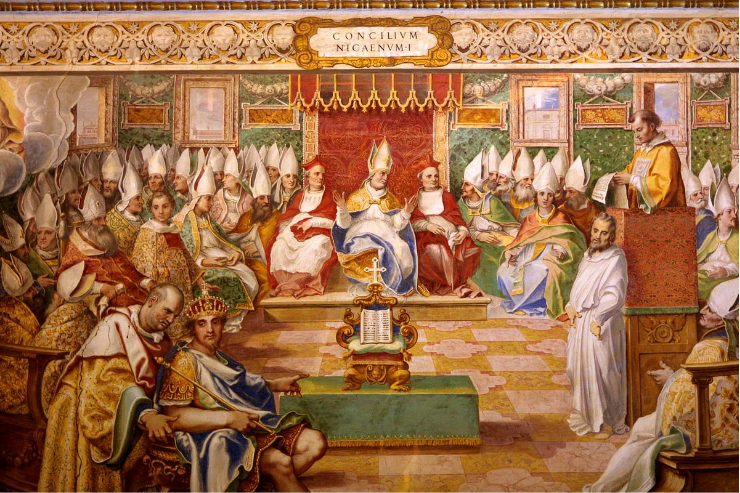
The early church fathers convened several ecumenical councils during the first few centuries of the church in an effort to settle disputes and clarify the church’s official teaching regarding the foundational doctrinal matters of the Godhead, the Trinity, and the Incarnation. An early product of this work was something referred to as the Nicene Creed. This creed defined orthodox trinitarian teaching for the church and also contained an early doctrine on the person of Jesus Christ. In 381 AD the Council of Constantinople convened which took the Nicene Creed and provided additional statements to strengthen its original wording. The Creed remains to this day an authoritative pillar of doctrine for all branches of Christianity. Pertaining to the Son, it reads in part:
We believe…And in one Lord Jesus Christ,
the only Son of God,
begotten from the Father before all ages,
God from God,
Light from Light,
true God from true God,
begotten, not made;
of the same essence as the Father.
Through him all things were made.
For us and for our salvation
he came down from heaven;
he became incarnate by the Holy Spirit and the virgin Mary,
and was made human.
He was crucified for us under Pontius Pilate;
he suffered and was buried.
The third day he rose again, according to the Scriptures.
He ascended to heaven
and is seated at the right hand of the Father.
He will come again with glory
to judge the living and the dead.
His kingdom will never end….”
Here the Creed teaches us several important doctrines, and among these we can see the establishment of Christ’s divinity and humanity, as well as his eternality. We also see an allusion to Christ being of the same essence as the Father. While the Nicene Creed served and continues to serve its purpose as a doctrinal cornerstone, the early Church was challenged again to further define the person and nature of Christ as it relates to his divinity and humanity. In 451 AD, the Church convened another council to define and defend a more refined Christology, one that sought to explain and defend both the humanity and deity of Christ and how the Son of God could exist as one Person with two entirely different natures. Thus, the Chalcedon Statement was borne of this effort.
“Following the holy Fathers, we all with one consent teach men to confess one and the same Son, our Lord Jesus Christ, the same perfect in Godhead and also perfect in Manhood; truly God and truly man, of a reasonable [rational] soul and body; consubstantial [coequal] with the Father according to the Godhead, and consubstantial with us according to the Manhood; in all things like unto us, without sin, begotten before all ages of the Father according to the Godhead, and in these latter days, for us and for our salvation, born of the Virgin Mary, the Mother of God, according to the Manhood; one and the same Christ, Son, Lord, Only-begotten, to be acknowledged in two natures, Inconfusedly, unchangeably, indivisibly, inseparably; the distinction of natures being by no means taken away by the union but rather the property of each nature being preserved, and concurring in one Person and one Subsistence, not parted or divided into two Persons, but one and the same Son, and only-begotten, God the Word, the Lord Jesus Christ; as the prophets from the beginning [have declared] concerning him, and the Lord Jesus Christ himself has taught us, and the Creed of the holy Fathers has handed down to us.”
The Council of Chalcedon had put to bed any false belief that Christ was neither fully human nor fully divine, as well as, authoritatively dismissing any notion that one of his two separate natures overshadowed or swallowed up the other. This short, simple statement has served as a theological foundation of the majority of the Church for 1,500 years. It is as timeless and profound as it is concise. So, what exactly does this mean for us today as we read through our copy of the Scriptures and mediate on the Incarnation during this season?
Well, certainly the Trinity and the Incarnation are profound, divine mysteries. Such is the nature of a transcendent deity. We should marvel and stand in awe that we serve a self-revealing, trinitarian God, who is the Great I AM, who not only created the universe and actively sustains it, but also donned flesh and walked among us. Fully God, yet, fully man. The Apostle Paul helps us here to understand the Incarnation and the author of Hebrews explains to us why it was necessary that God “condescend” to don flesh to dwell among his people.
“He is the image of the invisible God, the firstborn of all creation.”
Colossians 1:15
“For in Him all the fullness of Deity dwells in bodily form.”
Colossians 2:9
“Being found in appearance as a man, He humbled Himself by becoming obedient to the point of death, even death on a cross.”
Philippians 2:8
“Therefore, He had to be made like His brethren in all things, so that He might become a merciful and faithful high priest in things pertaining to God, to make propitiation for the sins of the people. For since He Himself was tempted in that which He has suffered, He is able to come to the aid of those who are tempted.”
Hebrews 2:17-18
“But He, having offered one sacrifice for sins for all time, sat down at the right hand of GOD.”
Hebrews 10:12
Christ, the God-man, represents his people to God the Father as their final High Priest and Advocate; we need no more representation. For not only is Christ our High Priest, he is our Propitiation. He bore the awful wrath of God, both physically and spiritually, on Calvary’s hill, in our stead. As a man, he was the perfect sacrifice, Agnes Dei, the spotless lamb of God who kept the law perfectly in a way that no other child of Adam ever could have; no further sacrifice is needed as it was infinitely sufficient. Our representative now sits on the throne of the universe as King of Kings and Lord of Lords, reigning and ruling over all creation and will bring righteous judgement soon.
So, as we celebrate the birth of Christ, let us meditate on the mystery of the Incarnation and dwell on the goodness and grace of God. Christ, the Incarnate Deity, is our great Prophet, Priest, and King.
To him be all glory, honor, and praise.
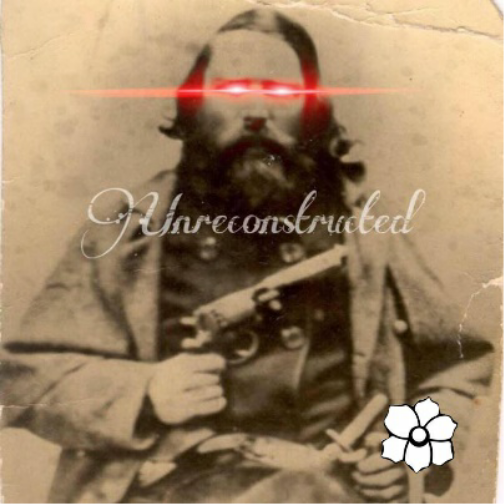
11th generation Southerner. Baptist.
A son of Covenanters, colonists, and cotton-farming Confederates.

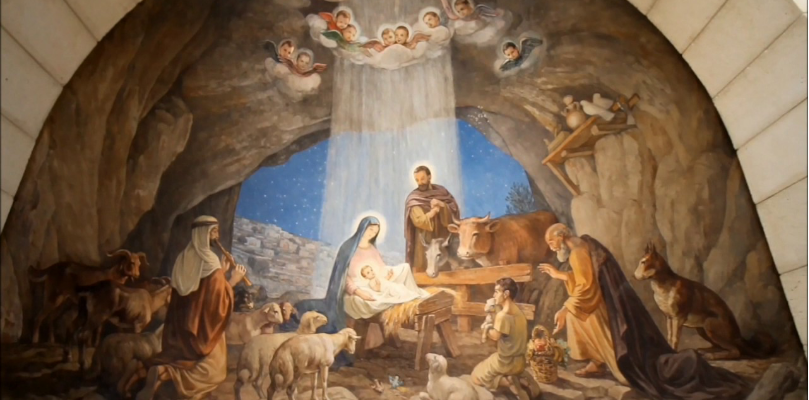
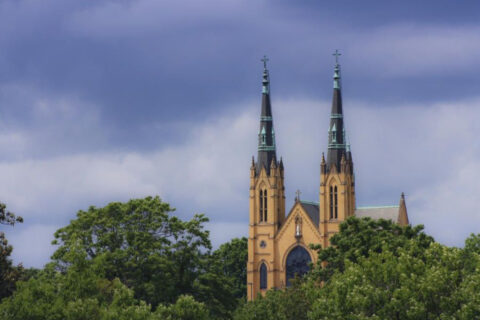

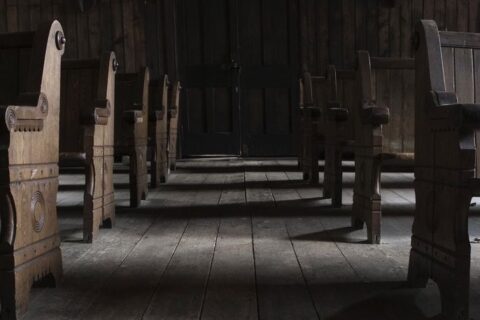
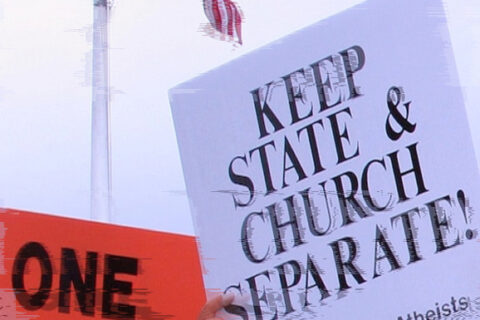
Merry Christmas and God bless Dixie!
Meh, more of the “multiple names were multiple gods combined into one” secular theorizing… added onto your pagan white utopian fantasy…
And manipulating translations to make it fit, of course. No mention of any “number of gods” nor “el elyon” (???) in the oldest translation available to us through Douay-Rheims:
[6] Is this the return thou makest to the Lord, O foolish and senseless people? Is not he thy father, that hath possessed thee, and made thee, and created thee? [7] Remember the days of old, think upon every generation: ask thy father, and he will declare to thee: thy elders and they will tell thee. [8] When the Most High divided the nations: when he separated the sons of Adam, he appointed the bounds of people according to the number of the children of Israel. [9] But the Lord’s portion is his people: Jacob the lot of his inheritance. [10] He found him in a desert land, in a place of horror, and of vast wilderness: he led him about, and taught him: and he kept him as the apple of his eye.
Not to mention that yet again, your logic defeats itself. If el alyon (the zeus-like-leader-god, or the dualist good-creator god, whatever) and other gods did exist for other peoples, then Jews by definition have also a right to their God being theirs, and taking his more extreme promises to fruition as they see fit. As would any other ethnoreligious people, really: we can see in pagan communities from Africa to the modern larpy world, that even broader pantheism degenerates into clan warfare and/or atomization over what god-ancestors-whatever one should respect more. Greeks (and Nordics and Amerinds) went to war within themselves all the time even with their common pantheon, and later the somewhat more stable Roman pagan pontifex structure was still rife with bloody conflict among the various temples over the emperor’s favor, to the point of influencing imperial politics (Eleagabalus for example, was deposed due to excessive Orientalism and homoerotic cultism). Even as their nation was falling, overall Jews were powerful in the more pagan imperial times (see Nero), as they could spread their influence while trading and pandering to pagans in the diaspora, not really needing to keep their country around save for begging for favor. See a pattern? To this day the Jews therefore propagandize to this secularizing/paganizing effect: wonder why Jews wrote media for Gentiles such as Superman and Thor? Or not only write Wonder Woman as a tribute to the degenerate Amazon lesbo-feminist pagan myth, but also getting an Israeli instead of Greek actress, to get the Zionist conserva-cucks to watch?
Which is why the psalm you quote contradicts you too, in the following verses:
5{81:5}They have not known nor understood: they walk on in darkness: all the foundations of the earth shall be moved.
6{81:6}I have said: You are gods and all of you the sons of the most High.
7{81:7}But you like men shall die: and shall fall like one of the princes.
8{81:8}Arise, O God, judge thou the earth: for thou shalt inherit among all the nations.
Meaning these other pagan (demi)”gods”/”sons of the Most High” (assuming the literal translation of “gods”, which could also mean the elect/anointed of Israel meant to be in the assembly of the Lord, but held outside due to their sins) were only flawed shades of the truth at best, murderous myths at worst, and therefore destined to fall. The One True God triumphs over them, even over the flawed Jewish supremacist-circumcisionist conception of Yhwh (how Jews interpret this verse, also wrong); as the God-Word Jesus Christ showed through His One True Church, that all nations will come to Him, without the need for universalist/Zionist/Islamis/pantheist/atheist rulers and towers of Babel…
Merry Christmas Dixielanders…